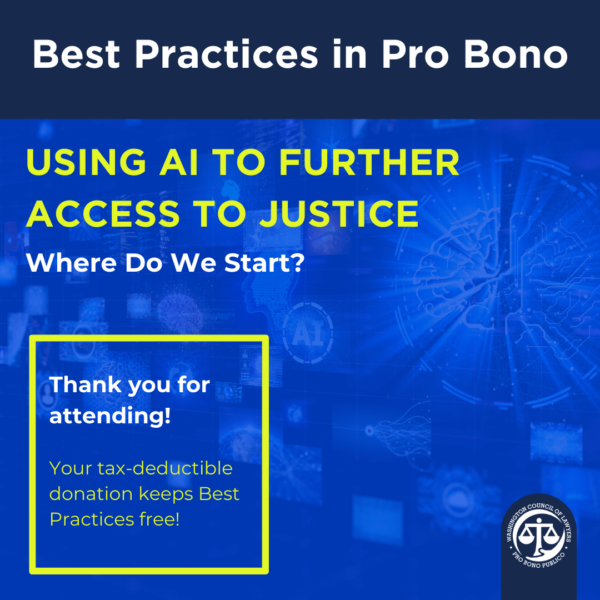
Best Practices in Pro Bono: Using AI to Further Access to Justice – Where Do We Start? Recap
On July 17th, we hosted a follow-up panel to our previous session on Best Practices in Pro Bono. The last event sparked many questions about leveraging AI to enhance access to justice and the considerations for its responsible use. How can we ensure equity and quality service delivery to clients? This follow-up expert panel delved into these questions and more, providing valuable insights into the ever-changing field of AI.
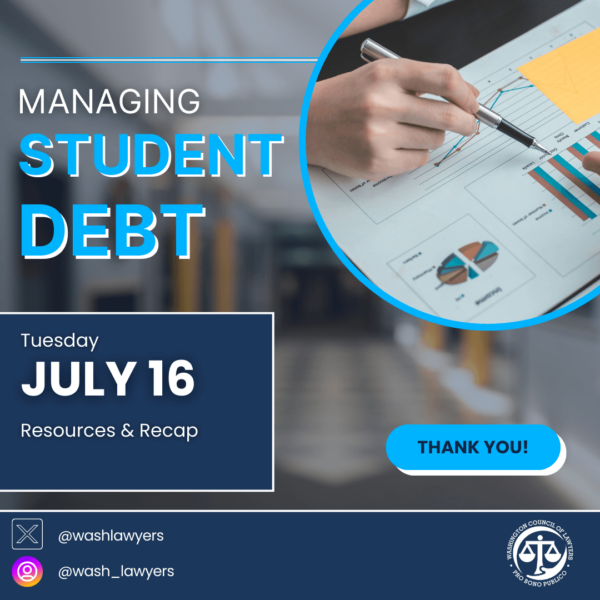
Managing Student Debt Recap and Resources
On Tuesday, July 16, we gathered virtually for Managing Student Debt. Aoife Delargy Lowe, the Vice President of Law School Engagement & Advocacy at Equal Justice Works. We discussed the many resources and opportunities for repayment support and loan forgiveness available to current borrowers. Our conversation highlighted the below resources, review these resources for how you can become more confident about repaying your student loans.
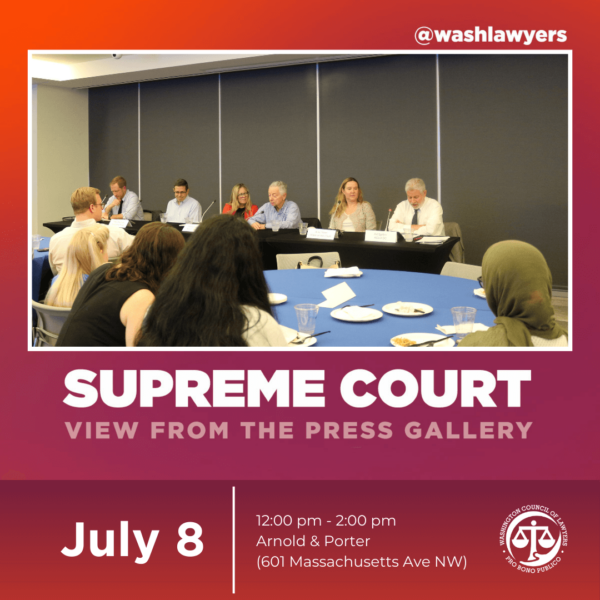
Supreme Court: View from the Press Gallery Recap
On July 8th, we welcomed a panel of distinguished journalists who have covered the Supreme Court for decades: John Fritze (CNN), Amy Howe (Howe on the Court and contributor to SCOTUSblog), David Savage (Los Angeles Times), Mark Sherman (Associated Press), and Abbie VanSickle (New York Times). Art Spitzer, Senior Counsel for the ACLU-DC, moderated the event. The conversation unveiled the Court both as an institution and a collection of individuals and how journalists cover the Court, particularly highlighting the 2023-24 term.
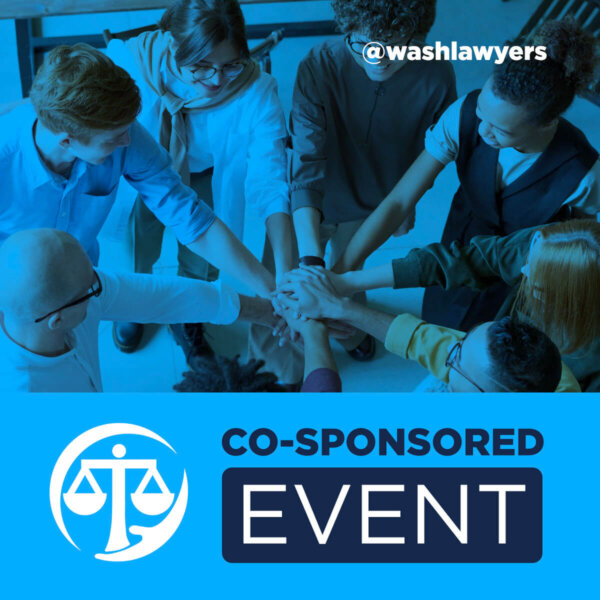
Council for Court Excellence Meet the Next Chief Judge Candidates Forum Recap
On Thursday, June 13, 2024, the Council for Court Excellence (CCE) organized a candidate forum for the judges, Hon. Marisa Demeo and Hon. Milton Lee, Jr., who are running for the position of chief judge. The Independent D.C. The Judicial Nomination Commission will ultimately designate the chief judge from among the two applicants. The forum provided an excellent opportunity for members of the bar and the broader community to understand the visions and priorities the Chief Judge candidates have for the Superior Court. This understanding helped inform public comment submissions to the D.C. Judicial Nomination Commission. The candidate forum was moderated by Karen Evans of The Cochran Firm and a member of the Council for Court Excellence Executive Committee.
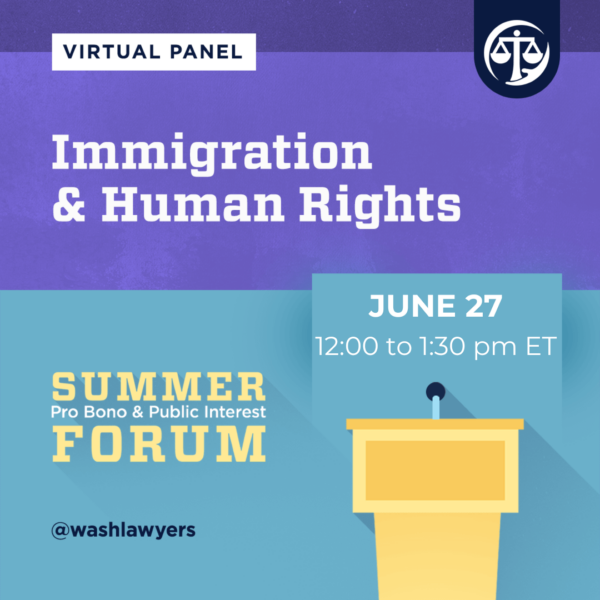
2024 Summer Forum Preview: Immigration & Human Rights Panel
Our country has long been a place where different cultures, beliefs, and nationalities come together thanks in large part to centuries of immigrants coming to the United States hoping to make a better life for themselves and their families. That dream of a better life still rings true in the hearts of those seeking to immigrate here today. However, for those new to the United States, navigating a foreign legal system can be a treacherous undertaking. That’s where immigration lawyers become essential. This panel will give you insight into what the field of immigration law looks like today and opportunities in which you can provide assistance.
Learn more about the wide-ranging legal issues immigrants face and what pro bono opportunities are available in D.C. and across the country to help address these needs at our 2024 Summer Forum Panel on Immigration and Human Rights Panel on Thursday, June 27 from 12:00 pm – 1:30 pm ET.
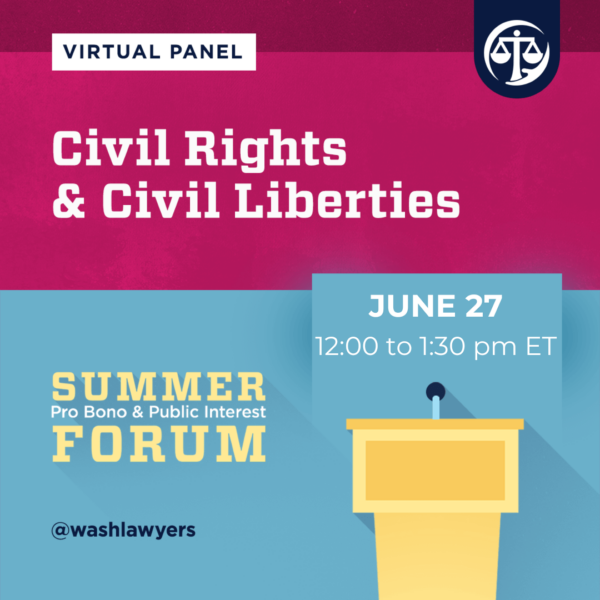
2024 Summer Forum Preview: Civil Rights & Civil Liberties Panel
Join us for an insightful panel event focusing on civil rights and civil liberties through the lens of public interest law and pro bono service. This event brings together distinguished legal experts and dedicated advocates who will share their experiences and perspectives on safeguarding fundamental freedoms and promoting social justice. Discover how pro bono efforts are making a significant impact in the fight for equality and learn about the ongoing challenges and opportunities in the realm of civil rights advocacy.
Don’t miss this opportunity to engage with leaders in the field and deepen your understanding of these critical issues. The Civil Rights & Civil Liberties Panel is on Thursday, June 27 from 12:00 pm to 1:30 pm ET. Register here to join the virtual conversation.
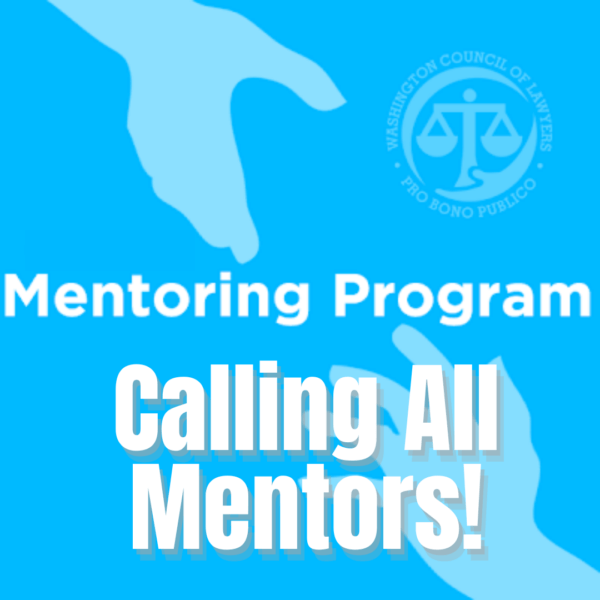
Calling All Mentors! Or those who want to be.
We are currently seeking mentors for the 2023-2024 Mentoring Program! If you have 5 or more years of legal experience and would like to share your experience with a newer lawyer, read on!
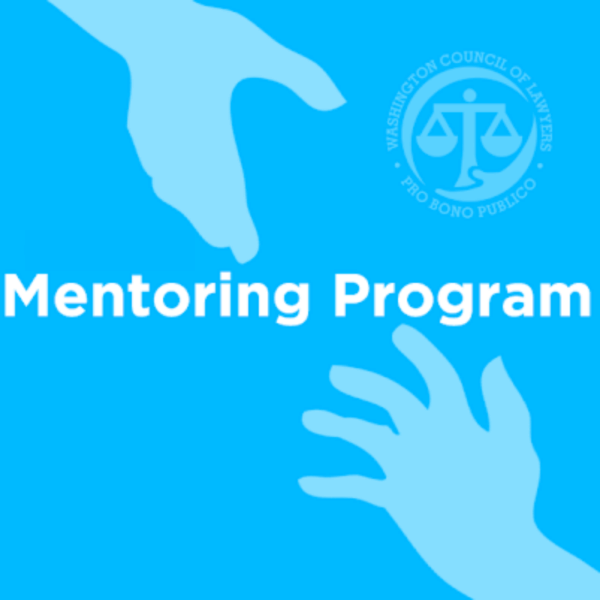
Applications Now Open for Our 2024-2025 Mentoring Program!
Applications are now open for the 2023-2024 Mentoring Program! If you have 0-3 years of legal experience and seek meaningful connections with the DC pro bono and public interest community, read on.
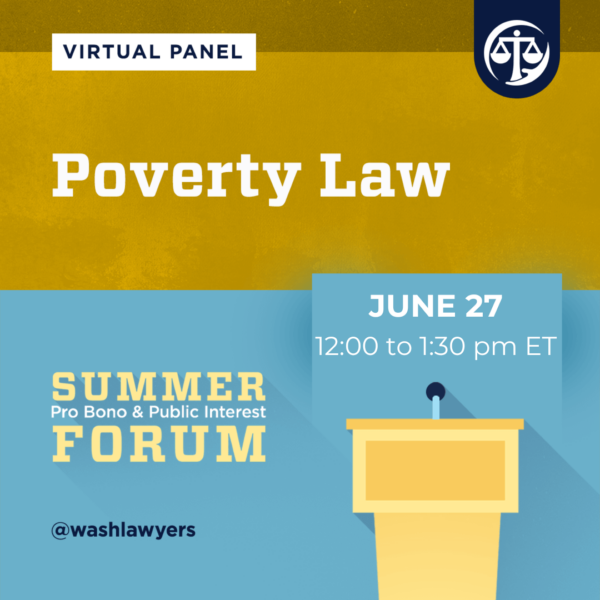
2024 Summer Forum Preview: Poverty Law Panel
People living in poverty struggle daily to meet basic needs for themselves and their families. Critical relief: housing, nutrition, health care, fair employment, and protection from violence, often turn not on rights but on access to justice. Often access to justice remain out of reach for many trying to navigate complex rules and requirements. While legal representation can transform an individual’s ability to access what they need to survive and thrive, low-income litigants are the least likely to have an attorney to help them through the legal process. Pro bono attorneys who fill this gap literally save lives.
Learn more about the wide-ranging legal issues individuals living in poverty face and what pro bono opportunities are available in D.C. and across the country to help address these needs at our 2024 Summer Forum Panel on Poverty Law on Thursday, June 27 from 12:00 pm – 1:30 pm ET. Register here to join the virtual conversation.






